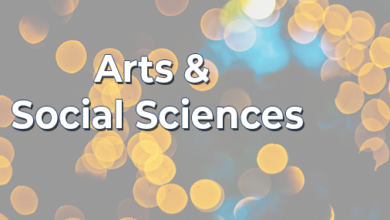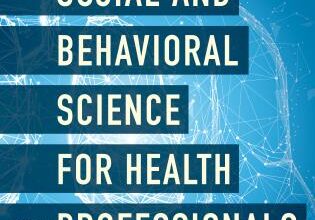8 Best Medical Courses to Study in Canada
Embarking on a journey of medical education in Canada offers a myriad of opportunities for aspiring healthcare professionals.
This guide delves into the realm of the “8 Best Medical Courses to Study in Canada,” providing a comprehensive overview of accredited programs, specialized disciplines, and essential information for prospective students.
Canada’s renowned medical education system, coupled with top-ranked institutions, makes it a prime destination for those seeking a fulfilling healthcare career.
Whether you’re a local student or an international aspirant, this article aims to guide you through the intricacies of choosing the ideal medical course, shaping your path toward a successful and impactful future in the field.
Also Read:
8 Best Medical Courses to Study in Canada
1. Medicine (MD)
- Overview: The Doctor of Medicine (MD) program is a comprehensive and rigorous course designed to train future physicians. It typically spans four years and includes both classroom-based learning and clinical rotations. Medical schools like the University of Toronto and McGill University are renowned for their MD programs.
- Curriculum: Core subjects cover anatomy, physiology, pharmacology, and clinical skills. Students gain practical experience through hospital placements and rotations in various specialties.
2. Nursing (BScN)
- Overview: A Bachelor of Science in Nursing (BScN) equips students with the knowledge and skills necessary for a nursing career. Canadian universities, including the University of British Columbia and McMaster University, offer accredited nursing programs.
- Curriculum: BScN programs cover anatomy, pharmacology, and nursing theory. Clinical placements in hospitals and community settings provide hands-on experience.
3. Pharmacy (PharmD)
- Overview: The Doctor of Pharmacy (PharmD) program prepares students for careers as pharmacists. The University of Toronto and the University of British Columbia offer esteemed PharmD programs in Canada.
- Curriculum: PharmD students study pharmaceutical sciences, pharmacotherapy, and patient care. Internships and practical experiences in pharmacies enhance their skills.
4. Dentistry (DDS/DMD)
- Overview: The Doctor of Dental Surgery (DDS) or Doctor of Dental Medicine (DMD) program is a professional degree for aspiring dentists. The University of Toronto and the University of British Columbia are prominent institutions offering dental programs.
- Curriculum: Dental programs cover oral health, diagnostic skills, and practical techniques. Students gain hands-on experience through clinical rotations and patient care.
5. Physical Therapy (MPT)
- Overview: The Master of Physical Therapy (MPT) program focuses on training physiotherapists to promote physical health and rehabilitation. Queen’s University and the University of Toronto are known for their MPT programs.
- Curriculum: MPT students learn anatomy, biomechanics, and therapeutic techniques. Clinical placements provide opportunities to apply theoretical knowledge in real-world settings.
6. Biomedical Engineering (BME)
- Overview: Biomedical Engineering programs integrate engineering principles with medical sciences. The University of Waterloo and the University of Toronto offer cutting-edge BME programs.
- Curriculum: BME students study biomaterials, medical imaging, and biomechanics. The program emphasizes the development of medical devices and technologies.
7. Medical Laboratory Science (MLS)
- Overview: Medical Laboratory Science programs train professionals to perform diagnostic tests and analyze medical samples. The University of Alberta and the University of British Columbia offer reputable MLS programs.
- Curriculum: MLS students study clinical chemistry, microbiology, and hematology. Hands-on experience in laboratories is a crucial component of the program.
8. Public Health (MPH)
- Overview: The Master of Public Health (MPH) program focuses on preventing diseases and promoting health at the community level. The University of Toronto and the University of British Columbia are recognized for their MPH programs.
- Curriculum: MPH students study epidemiology, health policy, and global health. Fieldwork and internships allow students to apply public health principles in real-world scenarios.
Overall, Canada offers a diverse range of medical courses catering to various healthcare professions.
Each program is designed to provide students with a strong theoretical foundation and practical skills essential for their respective fields.
When considering a medical course in Canada, aspiring students should carefully evaluate the curriculum, faculty, and opportunities for hands-on experience to make an informed decision aligned with their career goals.
Frequently Asked Questions (FAQ)
Which Course Has the Highest Demand in Canada?
The demand for healthcare professionals in Canada is consistently high, but nursing stands out as one of the most sought-after courses.
The Bachelor of Science in Nursing (BScN) and related programs address the critical need for skilled healthcare providers.
With an aging population and evolving healthcare needs, there is a nationwide call for qualified nurses to contribute to patient care in hospitals, clinics, and community settings.
The comprehensive nature of nursing education, coupled with diverse career opportunities, positions it as a top choice for individuals aspiring to meet the growing demand for healthcare services in Canada.
Which Field Has More Job Opportunities in Canada?
Healthcare remains a field with abundant job opportunities in Canada, driven by an aging population and evolving healthcare needs.
Professions such as nursing, pharmacy, and medical laboratory science consistently experience high demand.
Additionally, technology-focused roles in biomedical engineering and public health sectors are gaining prominence.
The country’s commitment to healthcare improvement and innovation further enhances job prospects.
As Canada continues to invest in its healthcare infrastructure, professionals in both clinical and technological fields find ample opportunities, making the healthcare sector a robust and promising avenue for job seekers.
What Jobs Are in Demand for Foreigners in Canada?
Foreign workers in Canada find opportunities in various sectors, with notable demand in information technology, engineering, healthcare, and skilled trades.
Technology professionals, including software developers, and engineers in fields like civil, mechanical, and electrical, are sought after.
Healthcare roles, such as nurses and physicians, remain in high demand.
Skilled trades, including carpenters and electricians, also present job prospects.
The Canadian government’s immigration policies and initiatives to address labor shortages contribute to a welcoming environment for foreign workers, making it feasible for them to secure employment in fields where their skills are needed.
Conclusion
Canada stands as a premier destination for medical education, offering a diverse range of top-notch courses to aspiring healthcare professionals.
The “8 Best Medical Courses to Study in Canada” encompass a spectrum of disciplines, from traditional medicine and nursing to cutting-edge biomedical engineering and public health.
With esteemed institutions, comprehensive curricula, and abundant opportunities for hands-on experience, these courses pave the way for a rewarding and impactful career in healthcare.
Prospective students are encouraged to explore these options, ensuring a well-informed choice aligning with their passion and aspirations in contributing to the evolving landscape of healthcare in Canada and beyond.






